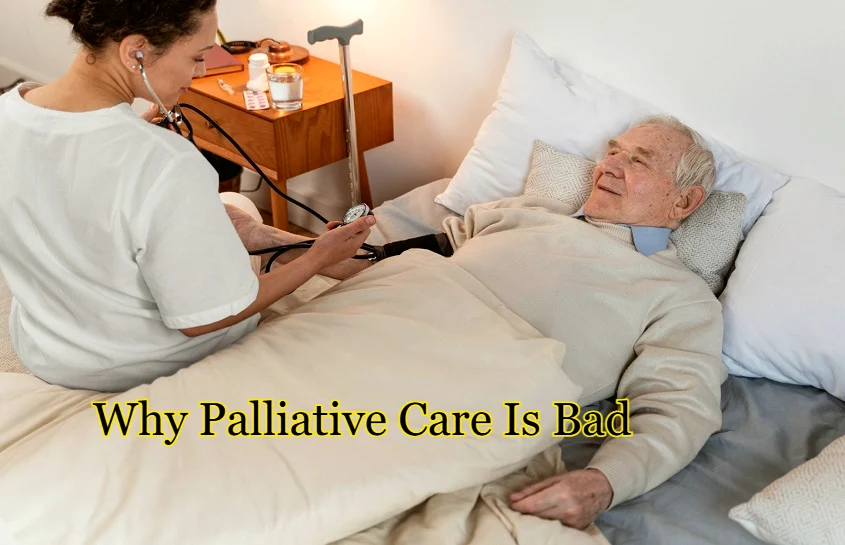Palliative care often appears as a warm, supportive option when a serious illness is diagnosed—something designed to alleviate pain, calm the mind, and provide families with a sense of emotional stability. It sounds comforting, right? But let me tell you: in real life, it doesn’t always land that way. I’ve heard families speak of regret, of wondering if comfort turned into settling. One relative told me, half-choked-up, “It felt like I blew our last shot.” That’s why more folks are quietly asking: why palliative care is bad sometimes.
Look—palliative care can be a lifeline. Truly. But it also carries baggage that’s often skipped over—like emotional strain, confusion about expectations, cultural friction, or money-driven decisions. We’re about to dig into what palliative care is, why people lean into it, who typically gets it, and—most importantly—why it falls short in certain situations.
What Is Palliative Care?
Think of palliative care as a special branch of medicine that isn’t focused on curing the illness, but on making the journey less brutal. Not that anyone signs up for this willingly, but when treatments stop being effective, comfort becomes the focus.
It typically includes three main things:
- Pain or symptom relief—this usually means meds powerful enough to calm even intense symptoms.
- Emotional and spiritual backing—counseling, someone to listen, perhaps a chaplain dropping by if it’s wanted.
- Help navigating tricky medical decisions—you know, someone who guides you when everything’s feeling too chaotic.
Crucially, palliative care isn’t hospice. Hospice usually kicks in when someone’s expected to have six months left. Palliative, at least in theory, can begin alongside treatment—much earlier.
Read More: Wepbound: What You Need to Know and How It Stacks Up Against Wegovy
Embracing the Benefits (Yes, There Are Many)
Let’s not be too negative—all this talk about what goes wrong can overshadow what really works.
- For someone battling end-stage cancer, organ failure, or dementia—when pain is constant and the body feels like it’s fighting itself—the relief can be a lifeline. It may not cure, but it allows actual moments of peace: uninterrupted sleep, a better night, fewer crying episodes.
- And families? They get a real advocate in their corner. Suddenly, they’re not lost in a maze of doctors, insurance forms, and guilt-inducing choices. They have someone guiding them—holding their hand when everything feels like it’s imploding.
- Dignity and peace: For patients nearing the end of life, palliative care allows them to spend their final months with some measure of comfort and control.
When done right, it truly helps. But when handled poorly, it’s exactly these good intentions that make the failures so painful. That’s where the debate about why palliative care is bad begins.
Who Can Receive Palliative Care?
Palliative care is not restricted or limted to one type of illness. It’s available to all the below patients
- Cancer patients are obviously on advanced or terminal stages.
- People having Chronic illnesses such as COPD, heart failure, or kidney disease.
- Some Neurological patients affected with Alzheimer’s, Parkinson’s, ALS, or other degenerative conditions.
- Children and young adults with life-limiting conditions.
Important note that any patiedn with serious illnesses that causes suffering can benefit. But in practice, the experience depends on how, when, and why palliative care is introduced—and that’s where problems arise.
Why Palliative Care Is Bad When It Feels Like Giving Up Too Soon

One major criticism is that palliative care can feel like giving up hope too early.
Imagine a man in his 50s with advanced cancer. His doctor suggests palliative care instead of continuing treatment. His family later learns about a new trial drug that might have helped—but by then, he’s too weak to qualify. The regret lingers.
This feeling of surrender is one reason families often say why palliative care is bad in their situation.
Why Palliative Care Is Bad When Options Quietly Disappear
Palliative care sometimes limits treatment choices without families realizing it.
- Insurance companies may stop paying for aggressive care once palliative care starts.
- Doctors may stop recommending trials or experimental therapies.
- Families discover too late that “comfort care” meant fewer medical options.
That sense of missed opportunities is why critics argue that palliative care is bad when not explained clearly.
Why Palliative Care Is Bad When Sedation Steals Final Moments
Managing pain often means heavy opioid use. While these drugs ease suffering, they also create unintended consequences.
- Patients may be so drowsy they can’t hold meaningful conversations.
- Families lose the chance for final goodbyes.
- Some quietly wonder if strong medication shortened their loved one’s life.
For families who value connection, this is one of the hardest reasons why palliative care is bad.
Why Palliative Care Is Bad When Beliefs Clash with Medicine
Culture and religion shape how people see end-of-life care.
- In some traditions, fighting for life until the very end is a sacred duty.
- Families may feel guilty choosing comfort over treatment.
- Medical teams sometimes overlook these beliefs, creating conflict.
This cultural mismatch is another reason why is palliative care bad for certain communities.
Why Palliative Care Is Bad When Clarity Disappears
A common complaint is confusion. Families often believe palliative care is “extra support.” Only later do they realize aggressive treatment has quietly stopped. Some even feel pressured by doctors into agreeing without fully understanding.
That lack of transparency is why many families regret the decision, saying palliative care is bad when communication is poor.
Why Palliative Care Is Bad When It’s Inconsistent
Not all palliative programs are equal.
- In cities, patients may get counseling, social workers, and home visits.
- In rural towns, palliative care might mean nothing more than painkillers.
- Some for-profit providers cut corners, focusing on cost savings instead of care.
This uneven quality explains why palliative care feels like a blessing in one place and a failure in another.
Why Palliative Care Is Bad When Money Takes Priority

Here’s the uncomfortable truth: palliative care saves money.
- Intensive care units, surgeries, and advanced drugs cost far more.
- Insurers and hospitals reduce expenses by moving patients into palliative care.
- Families sometimes sense financial motives outweigh compassion.
When trust breaks, everything about palliative care feels tainted. And that’s why many ask: Is this really about comfort—or about cost?
Why Palliative Care Is Bad When “Comfort” Blurs with Death
There’s an ethical debate that never quite goes away: does palliative care sometimes resemble slow euthanasia?
- Strong opioids depress breathing.
- Families wonder: did their loved one die from the illness or from the medication?
- Doctors call it comfort care; critics call it life shortened too soon.
This ethical gray zone is one of the deepest reasons why palliative care is bad in the eyes of some families.
Real Voices: Families Who Regret
- David’s Story: His mother entered palliative care for cancer. A month later, a promising drug trial opened. She was too weak to join. He still wonders, what if?
- Maria’s Story: Her father was sedated so heavily she never heard his final words. She carries that loss every day.
- Anjali’s Story: In her rural town, “palliative care” meant a few pain pills. The family felt abandoned by the system.
These stories reveal the human side of why palliative care is bad—not as theory, but as lived experience.
Final Thoughts
The question of why palliative care is bad doesn’t mean it has no value. Done well, it brings dignity, relief, and compassion. But when it’s rushed, unclear, or financially motivated, it creates regret instead of peace.
The real problem isn’t always the care itself—it’s how it’s practiced, explained, and offered. Families deserve the truth, real options, and respect for their choices. Only then can palliative care truly honor its promise of compassion.
FAQs
A: Because it can limit options, rely on sedation, create guilt, and leave families feeling they gave up too soon.
A: Not always, but heavy opioid use can unintentionally speed up death.
A: Because they later learn about treatments or trials that were no longer available once palliative care began.
A: Anyone with a serious illness—cancer, dementia, heart failure, kidney disease, or other life-limiting conditions.
A: Yes. Some families choose integrative care, blending ongoing treatment with comfort support, so they don’t have to abandon hope.
